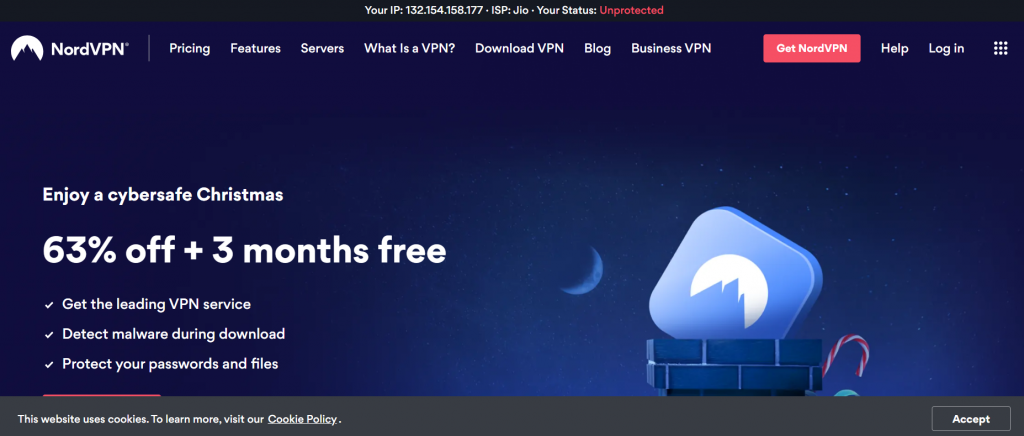With so many people now working remotely, it’s no surprise that VPNs (virtual private networks) have become more popular than ever. A VPN allows you to create a secure connection to another network over the internet. This guide will explain what a VPN is, how it works, and whether you should be using one. We’ll also go over some of the best VPNs on the market and how to choose the right one for you. By the end of this guide, you’ll know everything you need to about VPNs and how they can benefit your work-from-home setup.
What is a VPN?
A VPN, or virtual private network, is a secure tunnel between your device and the internet. VPNs encrypt your traffic and route it through their servers, making it impossible for anyone to see what you’re doing online.
VPNs are most often used by businesses to protect sensitive data, but individuals can also use VPNs to keep their personal information private. When you connect to a VPN, all of your traffic is routed through an encrypted tunnel. This makes it impossible for anyone on the same network as you—like your ISP or the Wi-Fi network at a coffee shop—to see what you’re doing online.
Your ISP can still see that you’re connecting to a VPN, but they can’t see what you’re doing once you’re connected. This makes it much harder for them to throttle your connection or sell your data to advertisers.
If you want to keep your data private and avoid throttling from your ISP, a VPN is the best way to do it.
How does a VPN work?
A VPN, or Virtual Private Network, allows you to create a secure connection to another network over the Internet. VPNs can be used to access region-restricted websites, shield your browsing activity from prying eyes on public Wi-Fi, and more.
Most VPNs work by routing your traffic through a server that is operated by the VPN provider. This server encrypts your data and sends it to the destination website or service. The website or service sees the request as coming from the VPN server instead of your computer, and responds accordingly.
The encryption process adds a layer of security to your Internet connection. Anyone trying to intercept your data will only see gibberish instead of the websites you are visiting or the files you are downloading.
There are many different types of VPN protocols with varying levels of security and speed. Some common VPN protocols include PPTP, L2TP/IPSec, SSTP, and OpenVPN.
The benefits of using a VPN
A VPN, or Virtual Private Network, is a service that provides a secure Internet connection by using private servers. A VPN encrypts your online activity and masks your IP address, so your internet activity cannot be tracked.
There are many benefits of using a VPN, including the following:
1. A VPN hides your online activity from your ISP.
2. A VPN encrypts your online traffic, so your data is secure from hackers.
3. A VPN allows you to access geo-blocked content.
4. A VPN improves your online privacy.
5. A VPN can help you save money on travel expenses.
The best VPN providers
If you’ve been reading about VPNs, or Virtual Private Networks, you may be wondering if you need one and what the best providers are. A VPN is a private network that uses a public network, such as the Internet, to connect remote users or sites together. It can provide a secure connection, allow access to restricted resources, and mask a user’s location.
There are many reasons why you might need a VPN. Perhaps you’re concerned about online privacy and want to browse the web anonymously. Or maybe you’re trying to access a geo-blocked site or service. Whatever your reason for using a VPN, there are several things to consider when choosing a provider, such as security features, server locations, speed, and price.
In this guide, we’ll take a look at some of the best VPN providers on the market and help you choose the right one for your needs.
How to set up a VPN
A VPN, or Virtual Private Network, allows you to set up a private, secure connection to another network. This can be useful if you need to access resources on a remote network, or if you want to keep your data and browsing activity private.
There are a few different ways to set up a VPN:
-You can use a VPN client program on your computer or mobile device. This will require you to sign up for a VPN service and enter the credentials into the client.
-You can set up a VPN server yourself. This is more complex and requires more technical knowledge, but it can be more secure since you’ll be in control of the server.
-You can use a web-based VPN service. This is the easiest option, and it doesn’t require any special software or configuration. Just sign up for an account with a VPN provider and connect to their servers via their website or app.
Once you’ve chosen your VPN setup method, follow the instructions provided by your VPN service or server to get started.
Our Recommendation: Nord VPN
If you’re looking for a VPN provider, we highly recommend NordVPN. They are one of the leading providers in the industry and offer a great selection of features and pricing options. NordVPN is a great choice for both beginners and experienced users alike. NordVPN is a VPN service and the flagship product of the cybersecurity company Nord Security. We value people’s freedom of choice beyond anything else, so we strive to offer access to free and safe internet for our users. Through hard work, dedication, and technological innovation we’ve created the fastest VPN in the world with state-of-the-art features.








